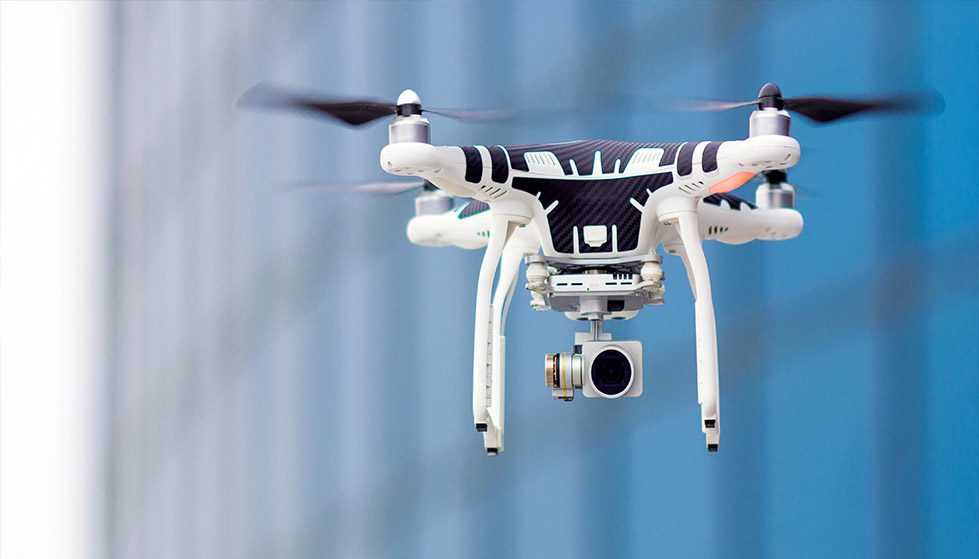Drone Surveillance and Private Investigation: Where are We Going?
August 24, 2016Surveillance takes place year round, but long holiday weekends such as Labor Day, and summer time in general have always been high season for private investigators gathering video on the activities of insurance claimants. The increasingly small size and decreasing cost of equipment has made conducting video surveillance a stronger tool than ever before.
Making it even easier? A rise in the use of aerial drones, and recent rulings that permit drone use in private investigative services. In fact, the FAA states that licensed pilots can easily qualify for drone permits, as well.

Corey Savant, founder of QIG, is a licensed pilot. Says Corey, “We as an industry are keen to use drones in surveillance work. At the moment, some firms are using drones, though the extent of legality is a bit of a gray area. With some of the recent information coming out of the FAA, it appears it will be easier now for existing licensed pilots to obtain the rights to use drones in commercial applications such as surveillance.”
A growing number of private investigators are now using drones, also known as Unmanned Aerial Vehicles (UAVs) to conduct the same kind of surveillance that once required a parked vehicle located near your property. Depending on the sophistication of the investigator, their surveillance may use a small drone that you can see as it buzzes by your home, or a more complex device that takes videos at a high enough attitude that you would not even think of looking for.
The Federal Aviation Administration recently unveiled “Part 107,” a new set of rules to govern the use of drones by commercial operators. Before Part 107, any for-profit entity flying a drone — from real estate agents to farmers to photographers — had to have a pilot’s license. The updated regulatory framework replaces that license with a knowledge test and certificate specific to flying a drone — allowing companies a much cheaper, faster, and simpler path to getting in the air.
For claimants who live in rural areas, or on large pieces of well-landscaped property, the use of a surveillance drone means that activities on your own property can no longer be considered private.
The main authority when it comes to drone flying is the FAA, but there are also various organizations that partnered up with the FAA in order to make sure the sky is still a safe place for everyone.
Commercial Drone Use
Their current use follows the FAA authorization of unmanned aircraft systems (UASs) for use in commercial or for business purposes and this is on a case-by-case basis.
The new rules keep the existing limitations that commercial drones may only fly during daylight, must stay below 400ft, and can weigh no more than 55 pounds. The new rules also establish a top speed of 100 miles per hour. Small drones will now be allowed to fly in sparsely populated areas without FAA approval, but must still work with air traffic control if they are planning to fly a mission over crowded airspace or above heavily populated areas. The rules also noted that an operator can fly a commercial drone without a certificate if they are supervised by someone who has been certified, opening up the possibility that future rule sets might allow multiple drones could be operated by a team with only a single certified operator who acts as an overseer.
Quality Investigative Group, through aerial knowledge and expertise held by Savant, is capable of providing clients with drone surveillance in some instances.
As mentioned, commercial drone users who have operating fields in rural or remote areas should keep in mind the possibility of low-level manned aircrafts which could include fixed-wing aircrafts and helicopters. The reason behind this is that there could be pilots who could be conducting agricultural, law enforcement, firefighting or wildlife surveys operations as well as an array of other operations with this being legally for them.
It also is important to keep in mind that all normal privacy laws apply to drone use. If you think drones might be of use in your next surveillance request, ask Corey about suitability. His knowledge on the subject could help you make your case.
The FAA has a set of rules which guide and regulate the use of drones to guarantee the safety of the drone users and those around them. There are some other community based organizations such the Academy of Model Aeronautics (AMA) which act as extensions of the FAA to the various communities of drone users and they normally operate in collaboration with the FAA. It is good to be aware of what governs the use of UAS to ensure that you are safe and that those around you are safe too.
QIG has the knowledge and expertise to help you make informed decisions with regards to drone surveillance in private investigative services. Call 337-235-1016 to learn more.